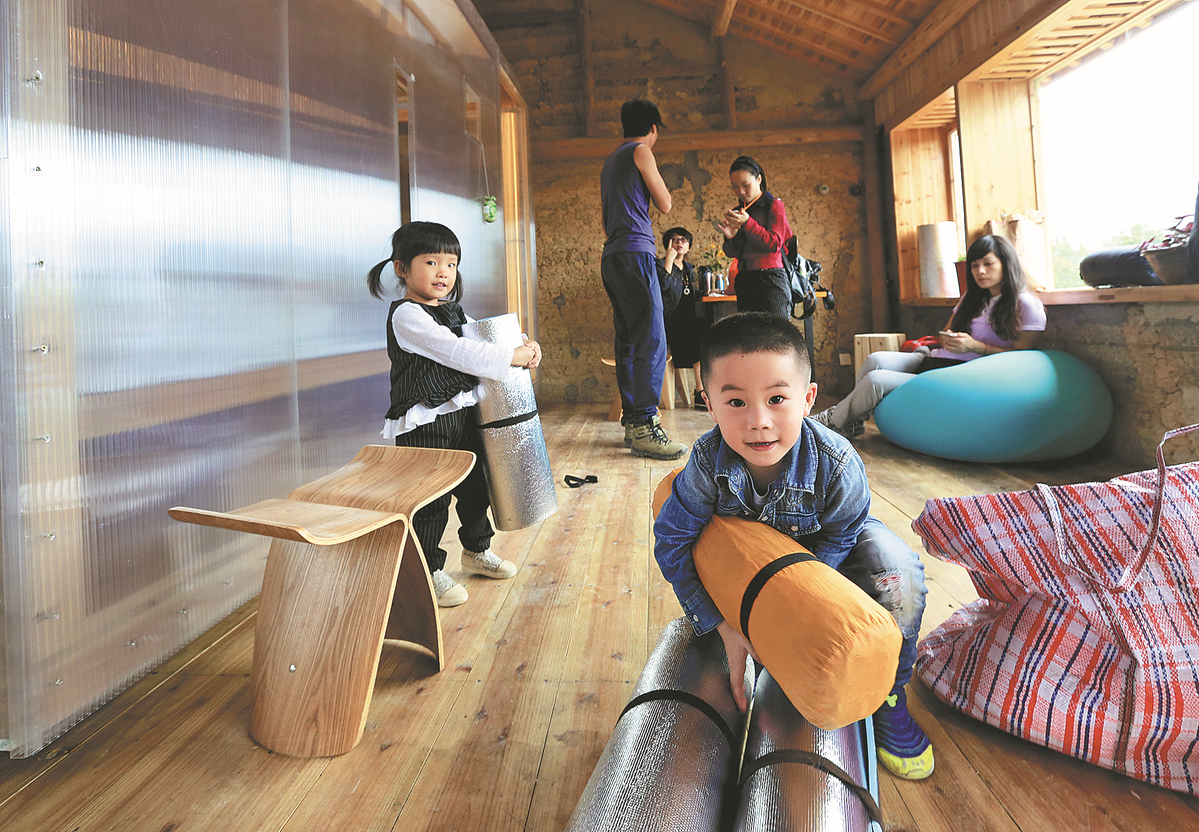Rural areas taste commercial success
China Daily, April 11, 2023 Adjust font size:
Children play in a hostel transformed from a traditional house in Pingtian village, Songyang, Zhejiang province.
Protection stressed
Li Xiaoyun, a rural development expert at China Agricultural University, said that if all villages were identical, the countryside would no longer trigger nostalgia among the public. In addition, farmers would not be able to tap the economic value of Chinese culture in different regions.
"More and more places are putting increased emphasis on protecting and inheriting regional cultural characteristics while vitalizing themselves," he said.
Li Xiaoyun is among scholars using their expertise to curb rural poverty through tourism, part of the antipoverty drive that began a decade ago.
In 2014, he traveled with a team of researchers from Beijing to Hebian, which translates as "riverside village", in Yunnan province. This picturesque ethnic Yao community sits on the perimeter of a subtropical forest.
Initially intended to be a field study of the poverty-stricken community staged over just a few months, the team's involvement with the village lasted several years. By the time it ended in 2017, the team had helped transform Hebian into a tourist resort complete with bamboo hotels, 4G internet access and nightclubs.
"Using the poverty relief fund, the village was rebuilt based on its original architectural style, and the traditional lifestyles of the locals were preserved," Li Xiaoyun said.
The renovation work, which included adding toilets and air-conditioning, helped make the village a more welcoming place for farmers to stay.
Li Xiaoyun has surveyed a range of rural development projects, from coastal Zhejiang province to the inland municipality of Chongqing, and come to the conclusion that those that are successful never involve demolishing old villages to build new ones from scratch.
He said successful projects call for minute modifications to be made to the original layout of a community, in the hope of improving its socioeconomic functions so that "traditions can be organically connected to modernity".
Some developers decide to move farmers out of their home village and turn it into a purely commercial area. At first glance, the village seems to have been preserved, whereas it has been destroyed, Li Xiaoyun said.
"The primary function of villages is to provide homes for farmers," he added.
Villages also need industries to provide jobs, and the integrated development of farming, craftsmanship and the service sector represented by tourism is the ultimate route to vitalization, he said.
As he does not believe in relying on a single source of income, Li Xiaoyun set up an e-commerce center in Hebian to help sell local farm produce, including organic eggs and pomelos.
"Tourism is not the only solution for rural villages," he said.

